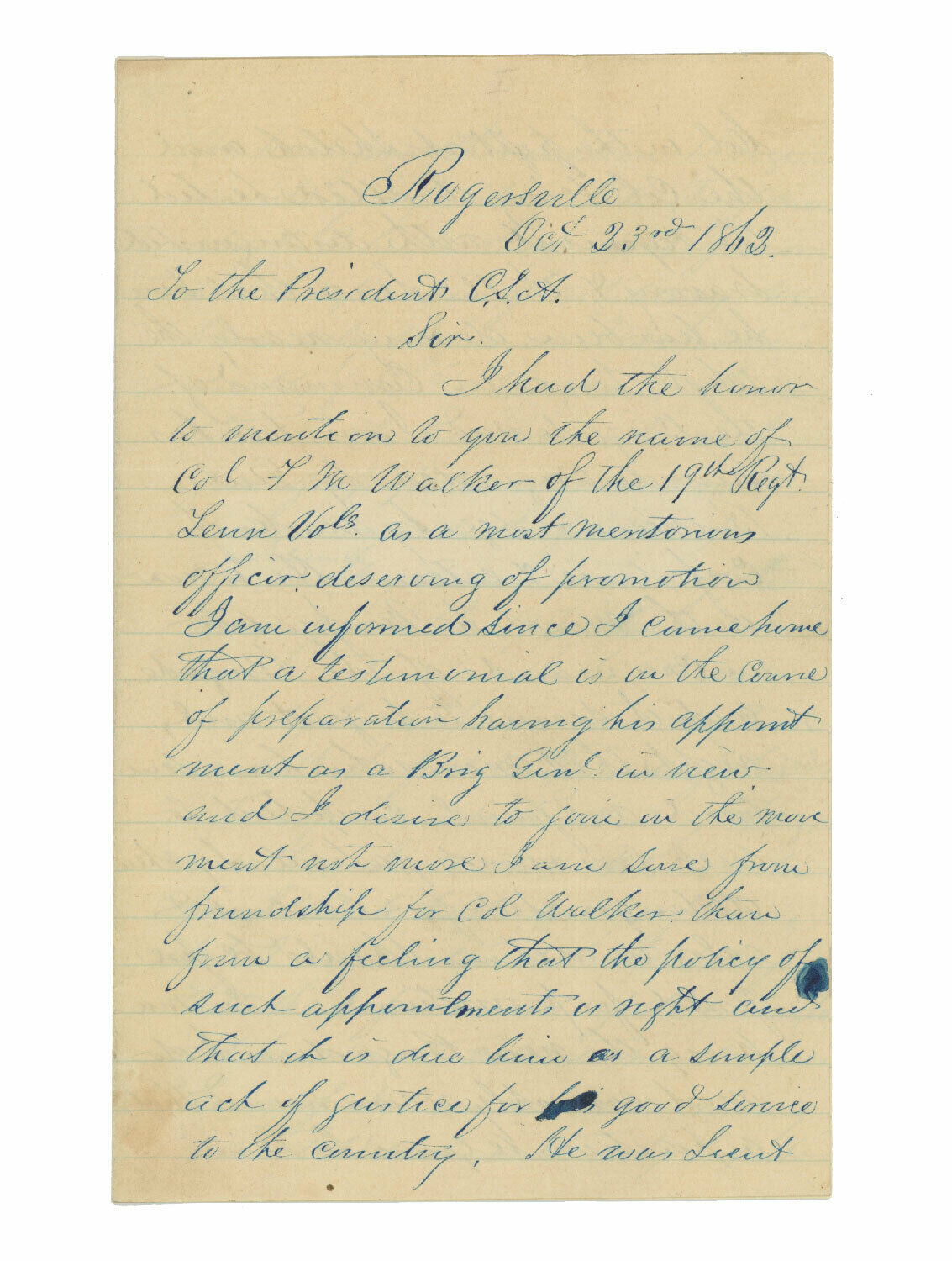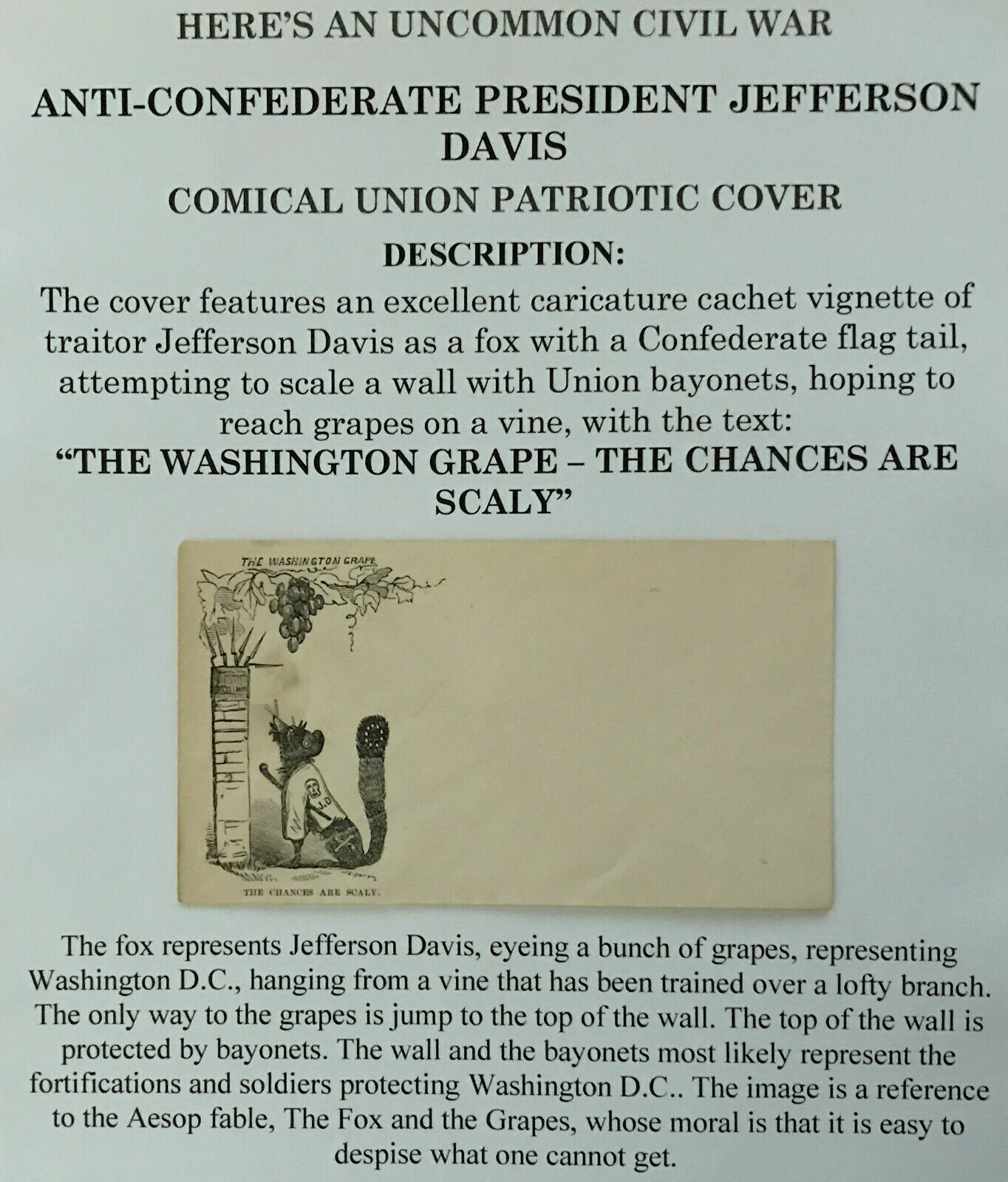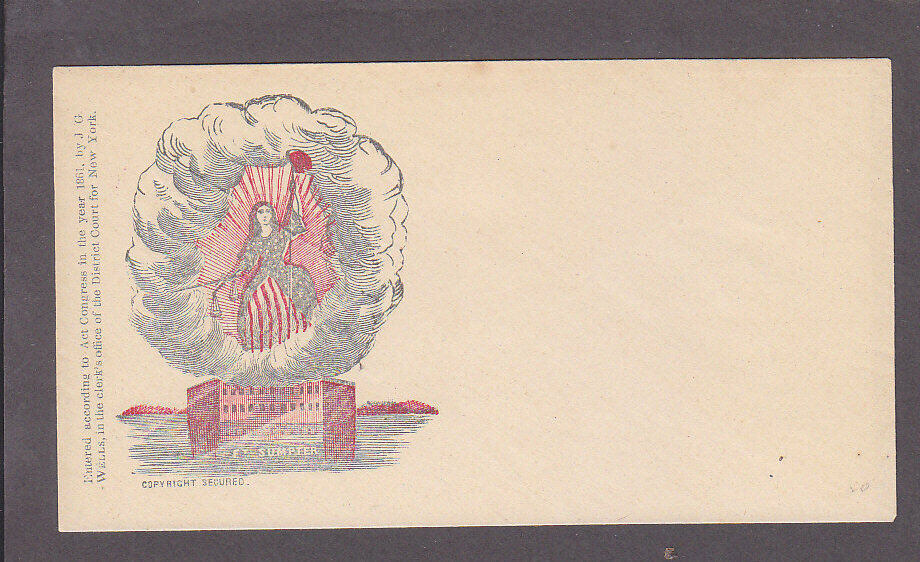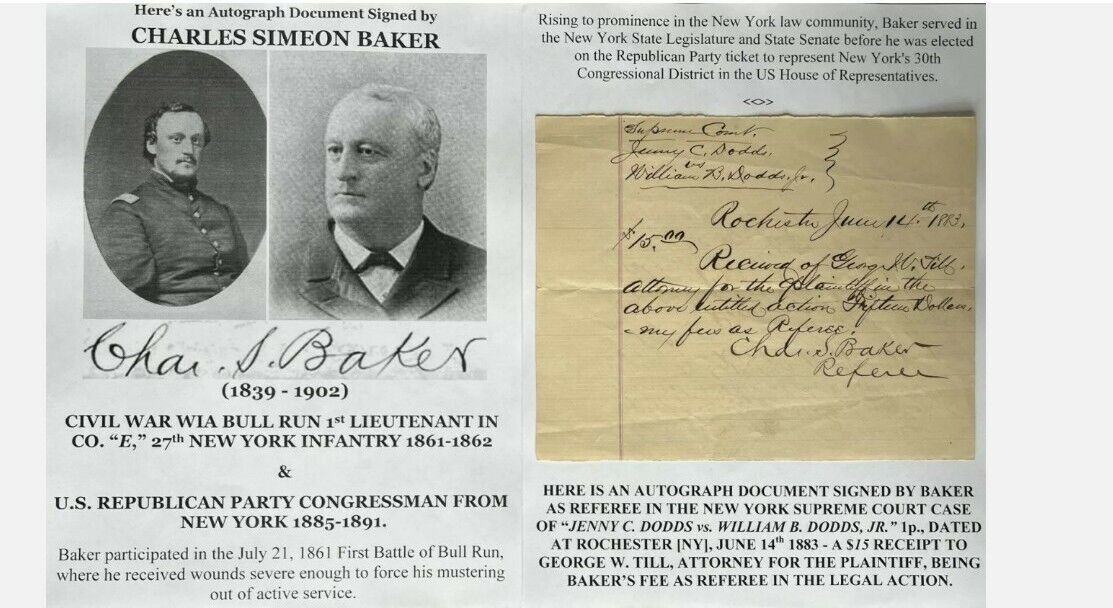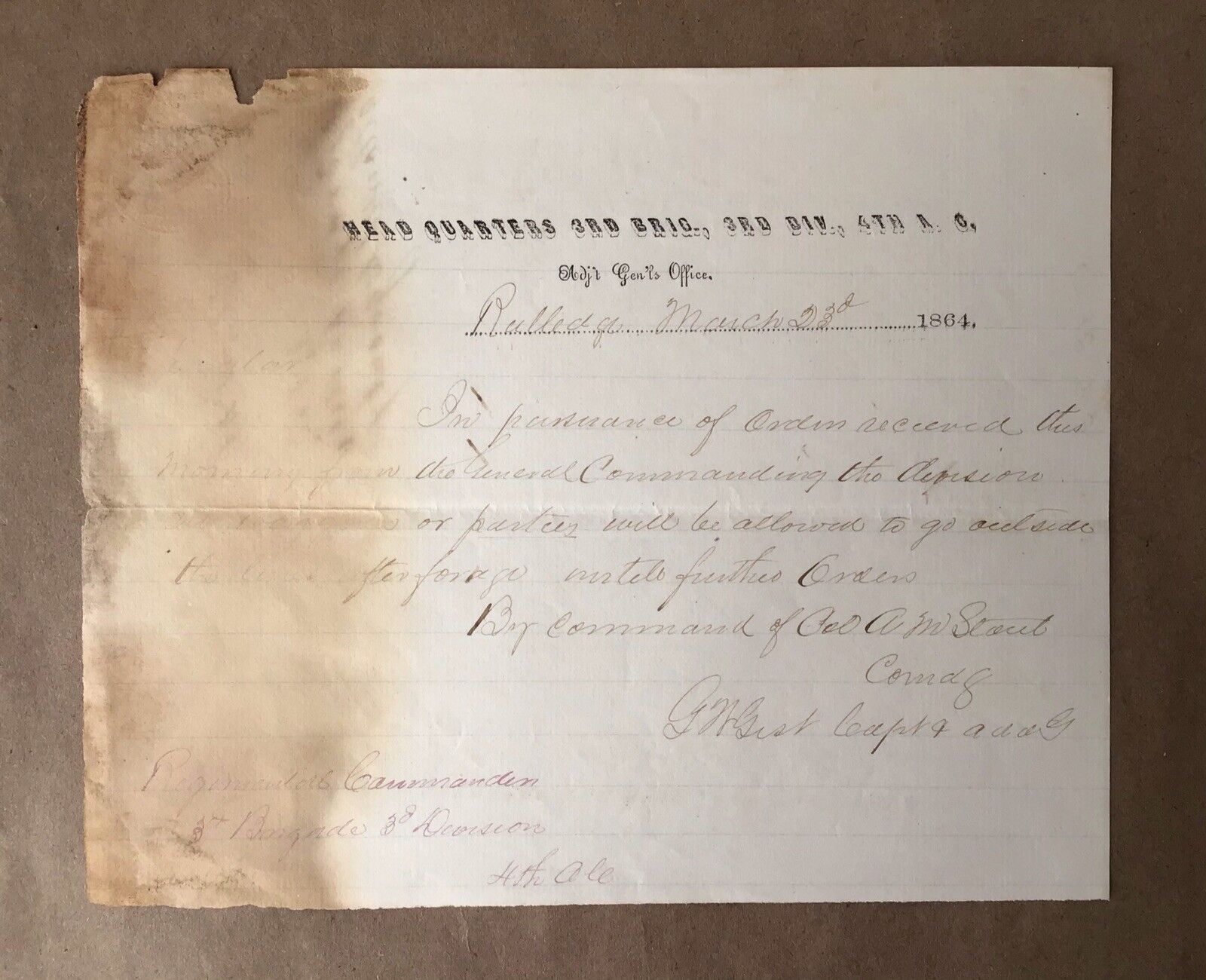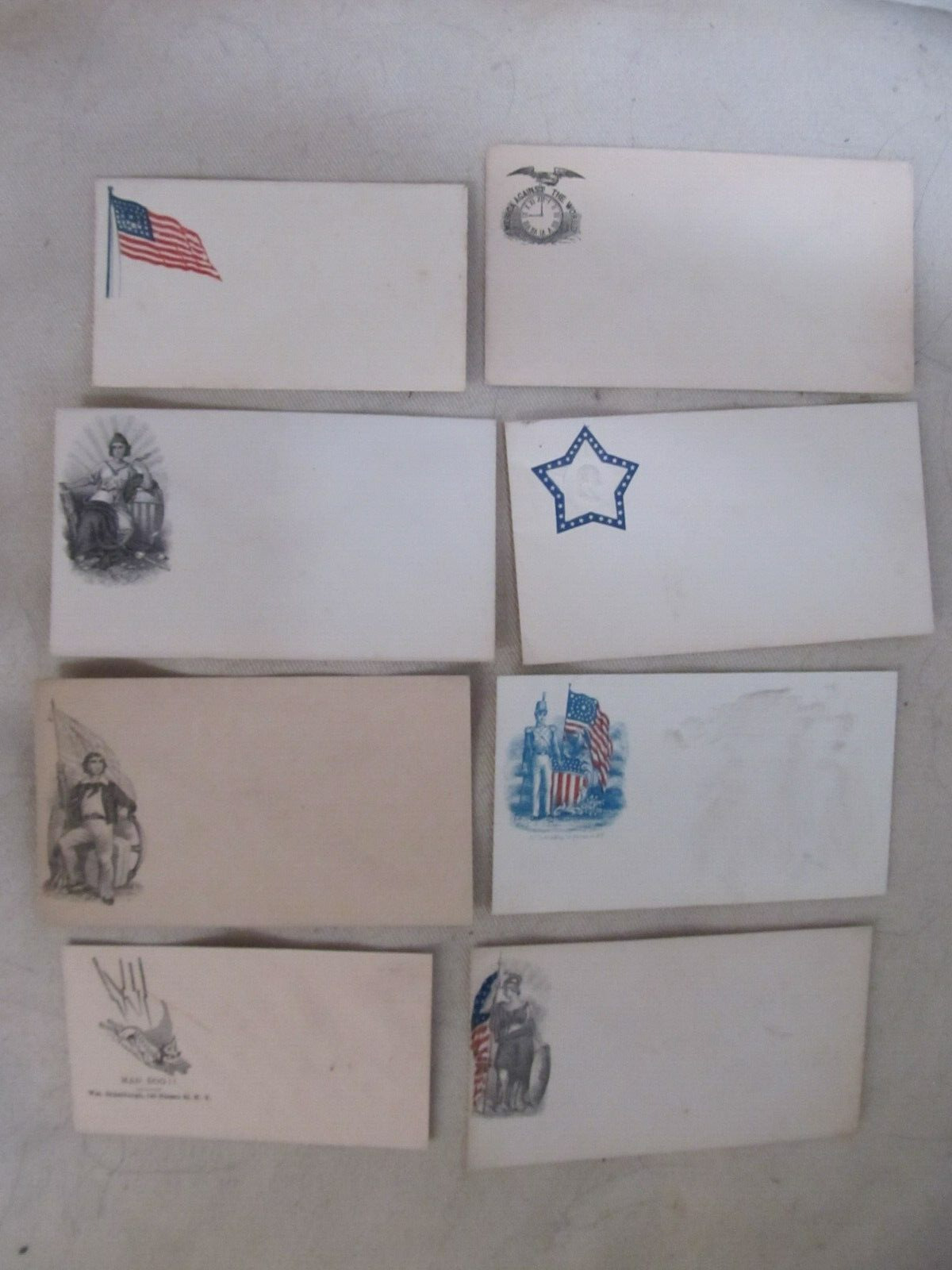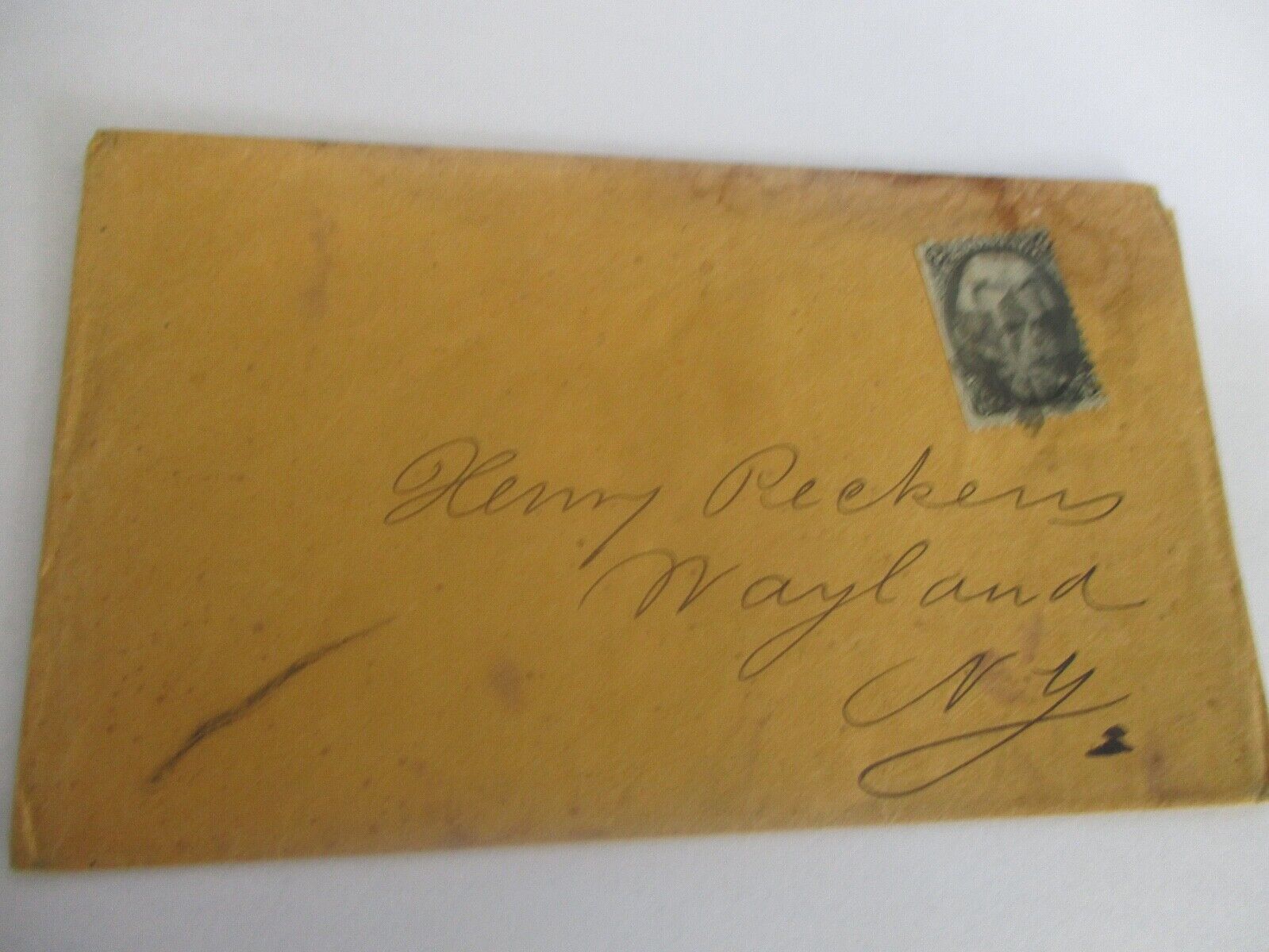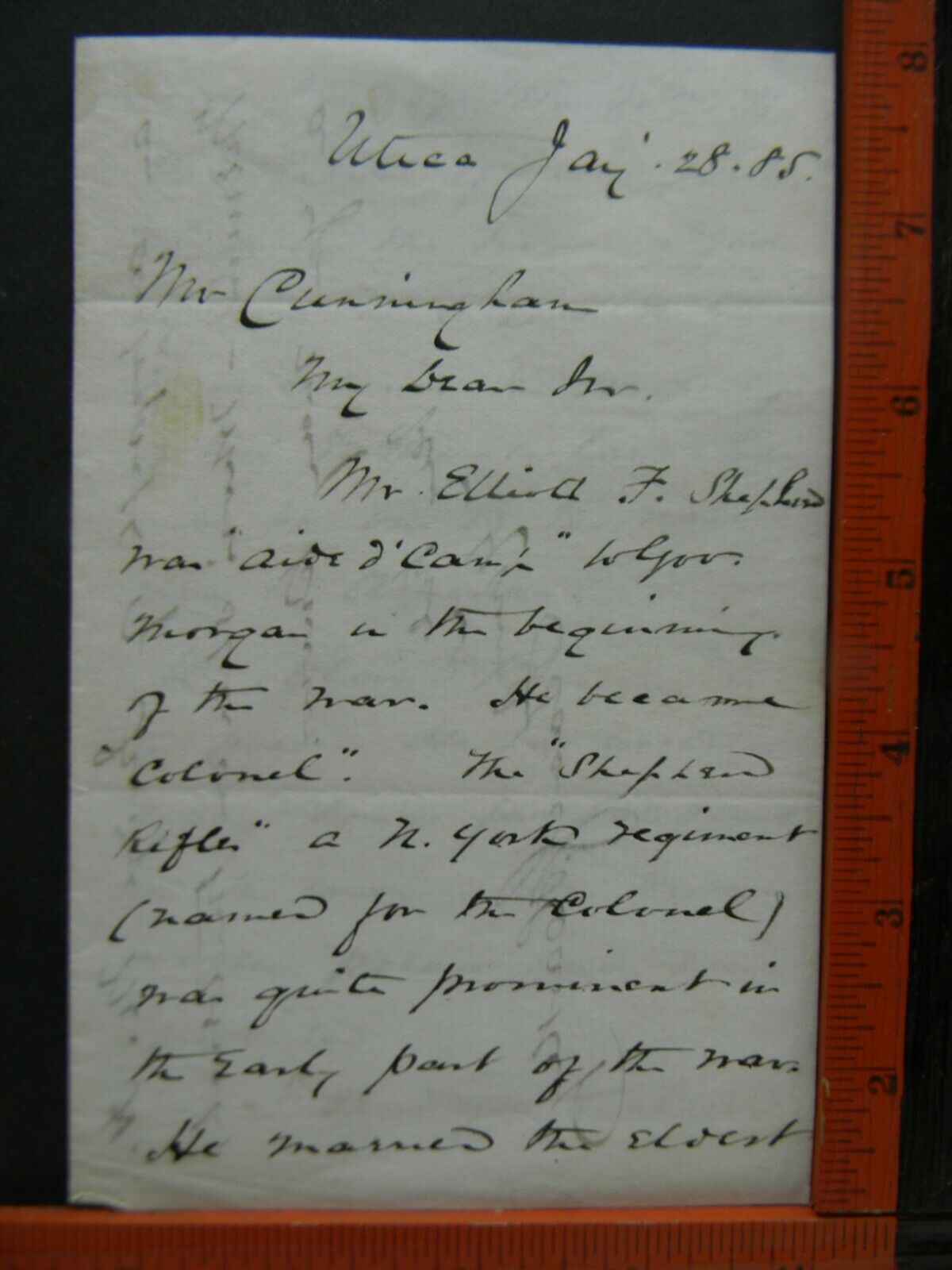-40%
Oct 1863 Confed. Civil War Rep's Letter to Jefferson Davis - 19th Tenn Promotion
$ 245.52
- Description
- Size Guide
Description
A fascinating 8-page October 1863 autograph letter signed byJoseph B. Heiskell
, a northeast Tennessee representative in the 1st and 2nd Confederate Congress, to Confederate
President Jefferson Davis
, recommending the promotion of an officer and advising the President on the enforcement of the
Conscription Act
. Heiskell urged Davis to give a brigadier’s star to
Colonel Francis Marion Walker
of the
19th Tennessee Infantry
, ”as a most meritorious officer deserving of promotion.” Walker had been commanding a brigade through the recent campaigns, and Heiskell believed “it seems to be just and right the men who have been tried and found competent to such commands, particularly when distinguished for conduct & valor in action should be preferred for promotion.” He also argued that his region had yet but one general’s appointment, that of
Brigadier General John C. Vaughn
, and having furnished “11 regiments of infantry, 2 regts of cavalry & 2 battalions and five or six companies of artillery,” was deserving of another appointment by the President. Walker’s promotion wouldn’t be confirmed until the following summer, and was delivered the day after he was killed leading his brigade in July 1864 at Atlanta.
The second part of Heiskell’s letter had to do with the Conscription Act. Having returned home to his district in largely pro-Union East Tennessee, Heiskell voiced his support for the policy that conscripts be sent to existing regiments to bring them up to strength, rather than be formed into new regiments. “I am told that notwithstanding the act of Congress and the positive orders of the Secretary of War,” he wrote, “the Commanding Genl. here is still encouraging the hope among these new men that they will be received under their present organizations,” meaning the conscripts had already been formed into new regiments. He urged Davis to favor the original intent of the Act—that existing companies of conscripts should be sent to existing regiments, adding that several soldier he talked with understood the necessity.
In 1864 Heiskell would be arrested by Union authorities and was jailed for the remainder of the war. The transcript follows, in full:
Rogersville
Oct. 23rd 1863
To the President C.S.A.
Sir
I had the honor to mention to you the name of Col. F. M. Waker of the 19th Regt. Ten. Vols. as a most meritorious officer deserving of promotion. I am informed since I came home that a testimonial is in the course of preparation having his appointment as a Brig. Genl. in view and I desire to join in the movement, not more I am sure from friendship for Col. Walker than from a feeling that the policy of such appointments is right and that it is due him as a sample act of justice for good serve to the country. He was Lieut. Co. in the fight at Shiloh and the, Col. being disabled, he led the regiment with distinguished bravery & skill. Since that time he has been during nearly the whole time in command of the brigade and I am told has been distinguished by Genl. [John C.] Breckenridge by marks of confidence & esteem. He is now on the march to Murfreesboro in command of the brigade and it seems to be just and right the men who have been tried and found competent to such commands, particularly when distinguished for conduct & valor in action should be preferred for promotion.
In making the new Brigadiers, I do most earnestly recommend that a position be given to him. We have from this section 11 regiments of infantry, 2 regts of cavalry & 2 battalions and five or six companies of artillery. We have only so far as I remember one Brig. Genl. [John C.] Vaughn. I am sure, Sir, the true men who, in the face of popular clamor & real danger, raised the first troops in this section of country deserve much of the country and the 19th was raised simultaneously with the 3rd and some of its companies were mustered in with the first companies of the 3rd.
I find a better state of things here than I expected. [Thomas A. R.] Nelson’s letter has, I think, had some influence, but I am inclined to the belief that the enforcement of the Conscription Act has done & will do much more. Some of Nelson’s men are cursing him, but such will only be put down by seeing the government ready & able to enforce its laws. The enrollment brings the government home to the people to use any old phrase in a new connection and men who would not recognize its existence by voting last November are now compelled to come before its officers to claim exemptions or go into its armies & fight its battles. They can no longer do as they have done heretofore, take oath of allegiance with the declaration that the oath was not binding because there is no such government. It makes itself felt. But while the effect is being produced the conscripts do not go forward. I do not hear of one being yet assigned to an old regiment yet.
One cause doubtless is the difficulty about the new Regts. I am told that notwithstanding the act of Congress and the positive orders of the Secretary of War, the Commanding Genl. here is still encouraging the hope among these new men that they will be received under their present organizations. It is not necessary to remind you of the conferences you were so kind as to have with Mr. [William G.] Swan & myself on this subject, in which the policy adopted by Congress subsequently was approved. It is said here that the effort is to be to construe the act to cover companies organized before the 1st of October, though the Regts were organized afterwards. The act is conclusive on its face, but certain circumstances occurring in the two houses make it so plain as to be unmistakable. Mr. [Landon C.] Haynes introduced the resolution in virtue of which the Senate Committee reported the bill and his resolution included companies. The Senate Committee struck it out and provided only for Regiments & Battalions.
The second section, however, used the words organizations and the House Committee, to avoid any possible misapprehension on this very point & because organizations would include companies, struck this out and had Regts & Battalions inserted. It can therefore serve no good purpose to keep up such expectations and as it must do much evil the action of the government in deciding upon the matter cannot be too prompt in putting an end to them.
I am satisfied from talking with several privates that there is no difficulty with them. I met one on my way home who asked me if they would be rec’d and when. I gave him information of the conditions of the matter. He at once acknowledged the justness of the policy of filling up the old Regts and began to advise with me whether he should join the 19th or go with a company now in Kentucky in which his brother was Capt. Before I reached home I met a man from another Co. I think he was a Lieut. or officer of some grade. He expressed a strong desire on the subject but acknowledged the right of the old regiments and said his company were resolved if not rec’d to go into the 19th. Such incidents suffice to show that if no temporizing policy intervenes to intensify desires now by no means improvable to men will be easily managed.
A difficulty may be improvised if the matter is delayed & officers greatly interested personally—aided as they will be by Union men here are given time to operate. But I am satisfied that with promptness no danger is to be apprehended. Pardon this long discussion of local affairs. They are much to us whose security depends upon the policy panned and they have been so considerably heard during our last session of Congress that I am persuaded they will at least be tolerated.
With Great Respect
Yours
J. B. Heiskell
The letter was written on a total of eight pages covering two sheets of 5” x 8” stationery. Excellent condition. Light toning and foxing. Creased where originally folded.
Please see my other items for more interesting Civil War letters, documents, and images.
Foreign shipping is provided through eBay's global shipping program.
